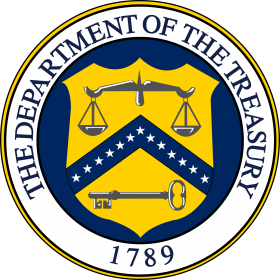Significant legal action against alleged operators of pirate sites have traditionally been carried out with great fanfare.
However, a case underway in federal court in Oregon is a very different beast, particularly given its scale and form.
The case filed in the district court May 6, 2019, reveals the United States government seeking forfeiture of around $4 million dollars worth of cash and cryptocurrency seized on the basis that the owner of the property was involved in a conspiracy to commit copyright infringement and money laundering.
The investigation reportedly began in October 2013 when Homeland Security Investigations (HSI) agents received information from PayPal concerning two websites, Noobroom.com and Noobroom7.com, that allowed subscribers to stream movies and TV shows.
HSI reported these sites to the MPAA which conducted an investigation, concluding that the sites and associated domains Noobroom and Noobroom9 distributed works in breach of its members’ copyrights. Revenue was reportedly generated by subscriptions processed through Stripe and via adverts placed by a company called Lanista Concepts.
In July 2014, the MPAA sent a cease-and-desist notice to Noobroom. Five days later a covert Noobroom user account operated by the Hollywood group received a message advising users that their accounts had been moved to a new website at SuperChillin.com.
After downloading movies from SuperChillin, the MPAA was able to link an IP address to an individual identified as Talon White. The suspect was subsequently linked to two additional sites – movietv.co and Sit2Play.com – which were deemed to be near identical copies of each other. The registrant of Sit2Play was listed as Talon White and an associated email address was determined as belonging to him.
HSI’s investigation continued from 2016 to November 2018 when search and seizure warrants were executed. A declaration by Keith Druffel, a Special Agent of the Internal Revenue Service – Criminal Investigations, reads as follows;
“Based on financial records obtained during the investigation, I determined that White received substantial revenue from the above-listed websites,” Druffel writes.
“In 2018, he was averaging revenue over $500,000 per month. In 2017, White received over $2.2 million. In 2016, White received over $1 million in revenue, and in 2014 and 2015, White received on average about $400,000 a year in revenue.”
According to Druffel, subscribers of the sites paid via PayPal or Stripe, payments that were deposited into bank accounts controlled by White. Information provided by Stripe matched White’s personal information and the account was labeled as “Selling stock tip subscriptions via email.” The IRS claims there is no evidence of any such sales.
78,985 payments of $9.99 were received into the Stripe account between October 2015 and December 2016, amounting to $789,060. A further 7,611 payments of $25.49 ($194,004.39) and 5,348 payments of $44.99 ($240,606.52) made a grand total of $1,223,671.24.
“The above-listed amounts correspond to the listed subscription costs on Sit2Play and Movietv. Therefore, I believe the payments received by Stripe are the subscription fees for the websites,” Druffel adds.
Further analysis of transactions on White’s Stripe account dated between October 2017 and September 2018 revealed a further 396,843 payments of between $9.99 and $44.99 to a value of $6,373,816.57.
“The above listed amounts correspond to the cost of subscriptions to the websites and represent proceeds from the violation of 18 USC § 2319, Criminal Copyright Infringement,” the statement reads.
The investigation found that through August 2018, more than $3m was transferred from the Stripe account to a Wells Fargo account in White’s name and a JP Morgan Chase account held in the name of Viral Sensations, Inc. (VSI), a Nevada entity.
White is alleged to have opened three checking accounts in the name of VSI, over which he had sole signature authority. Through August 31, 2018, one VSI account received payments of more than $5.9 million. The accounts were linked to White and subscriptions from the pirate sites. Funds from one of the Chase accounts were used to buy $1m in cryptocurrency through virtual currency exchange Coinbase.
On November 13, 2018, Mustafa Kasubhai, United States Magistrate Judge for the District of Oregon, approved a search and seizure warrant authorizing a search of White’s residence and seizure of various assets. The warrant was executed two days later, yielding the following;
- $2,457,790.72 seized from JPMorgan Chase Bank account #1
- $1,266,650.00 seized from JPMorgan Chase Bank account #2
- $1,383.68 seized from JPMorgan Chase Bank account #3
- $200,653.71 seized from JPMorgan Chase Bank account #4
- $32,921.00 seized in US currency (cash)
- $1,940.77 seized in US currency (Stripe account)
- 31.53810677 in BTC (Coinbase account)
- 1,022.39066800 in ETH (Coinbase account)
- 5.74017141 in BCH (Coinbase account)
“[I] have probable cause to believe, and I do believe, that White and others known and unknown were involved in a conspiracy to commit copyright infringement and money laundering, in violation of 18 U.S.C. §§ 1957 and 2319 from at least 2013 through November 2018,” Druffel’s statement adds.
On May 7, 2019, District Judge Anna J. Brown issued an order to the IRS to hold the assets until further notice.
“You are hereby commanded to arrest and take into your possession until further order of the Court, defendants, in rem, Assorted Funds,” the Judge wrote.
From a copyright infringement perspective, this case is pretty unusual.
Most civil and criminal cases against pirate sites and their operators involve detailed descriptions of their workings along with finely-tuned claims of various types of infringement. But the focus here appears to be a financial one, for now at least.
A report from Koin.com suggests that the man hasn’t been charged with a crime yet. In an effort to find ou more, TF approached White’s lawyer Rain Minns. At the time of publication we were yet to receive a response.
Related court documents obtained by TF can be found here (1,2,3)








